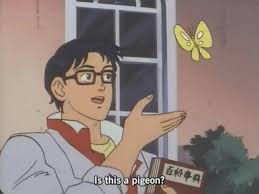The EU Approves the ‘Meme ban’

by Christianna Tran ’20
The European Parliament Union (EU) on September 12 approved controversial copyright reforms that were previously rejected early in July; however, with an updated version, the EU voted in favor for the new changes. The reforms are expected to pass the final vote held in January that will determine if these copyright guidelines will be put into action.
Many people in the artistic and media communities are supportive of the directive, believing that this is a way to protect their hard work from those attempting to steal it. In an interview with CNN, EU member Axel Voss, the sponsor of the bill, said “this is a good sign for the creative industry.” The EU additionally believes that the new directive will help creators get paid for their work.
Though most critics agree that there should be provisions to help creators financially, they don’t think that this directive is the correct way to get it. Many are worried that the EU’s new guidelines will cause major censorship and stop the free flow of information.
People are concerned that the bill may cause the end of many internet trends. Online content such as reaction videos, fanart, parodies and let’s plays are at risk of being restricted. Even musicians who sample other’s music are in danger. One substantial concern is the possible end of memes. Although memes are legal, big scanners that may be placed on websites most likely wouldn’t be able to determine the difference between them and copyrighted materials, causing many to be wrongly taken down.
Articles 11 and 13 of the approved reforms are two sections that will have the biggest effect on the internet. Article 11, or the “link tax,” allows publishers the right to tax anyone who uses or shares their content. Article 13, also dubbed as the “upload filter,” causes major internet platforms, such as YouTube and Facebook, to place a scan on all the content users put up. The overall effects that the directive might have are worrying to many but could also be a big step for various creators. Nevertheless, until the final vote in January, online users will not fully know the extent to which the internet will change from the way it works currently.